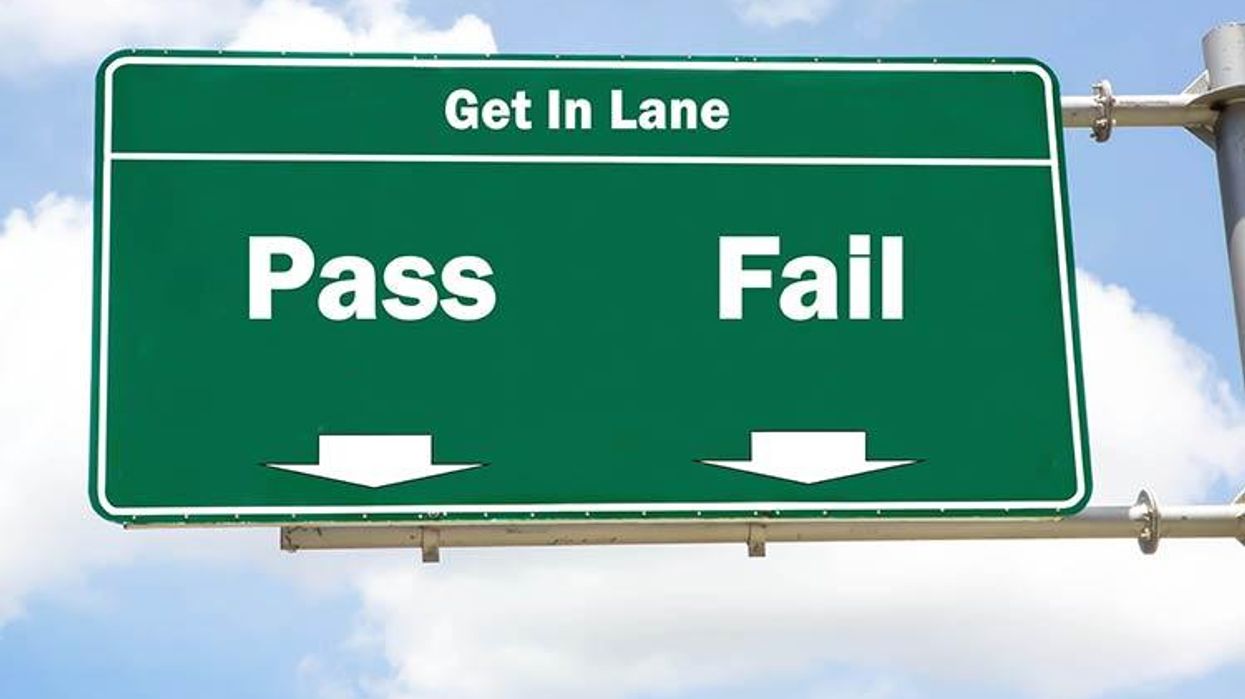
After writer Amanda Kerri discovered her coworkers knew she was trans all along, she panicked about not being feminine enough. After the flowy dresses and expensive foundation, she realized it just wasn't her.
May 26 2016 1:43 AM EST
By continuing to use our site, you agree to our Privacy Policy and Terms of Use.

After writer Amanda Kerri discovered her coworkers knew she was trans all along, she panicked about not being feminine enough. After the flowy dresses and expensive foundation, she realized it just wasn't her.
Ever since trans people started becoming more visible, I've been getting a lot more people at work talking to me about trans issues -- people I've worked with for years who have never said anything about it before. The worst is when they lean in and talk to me in those hushed tones. You can see them take a quick look around and lean in. All you can think is, Oh, God.
When someone I normally don't work with called me "sir" the other day, they apologized for 10 minutes even though I kept telling them it was OK. "I just want to respect you!" Good, then stop apologizing after I tell you it's OK the first five times -- heaping ashes on your head and taking a pilgrimage to Lourdes is unnecessary.
All of this has just started over the past few months and I realize it's because we're more present in the culture at large. While I talk onstage about being trans and write about it, I've never brought it up at work. My colleagues coming to me about trans issues means I didn't pass as well as I thought I did. No one was saying anything because they were being polite about it. How terrible that people were being politely silent! This has caused me a lot of upset. I thought everyone just believed I was a lesbian or Amazonian in my build. Now I want to wear skirts to work. I'm working on my voice again; I'm checking my makeup three or four times a day. I'm trying to lose weight so I have a less masculine build. I'm buying back into the idea that being a woman means being more feminine. It sucks, because I really don't have the legs for skirts and my attempts at smoky eyes always makes me look like a raccoon.
I've always thought I passed well enough, but not quite enough to be stealth. Like most trans women, I have my tells -- big feet, big hands, tall and broad. Then there are the truly frustrating ones. After all these years, I still sound like Kathleen Turner if she ate cigarettes. The look on people's faces when I get called "sir" at the drive-thru only to pull up and see me staring at them is still amusing, though.
One of my first jokes I wrote about being trans was all those guys who said they couldn't see me as a woman, not because of my mixture of masculine features, but because I don't wear skirts and dresses. My reply was always "Have you actually met women before?" That always amused me, but the more I thought about it the more I began to wonder, Have trans women met women before? I'm a member of a Facebook group that's meant to be a discussion group about trans issues, and there's very little talk of support but a lot about "How well do I pass?" You can't complain about the 20 posts every day of someone posting a selfie and asking 'Do I pass?' because it might offend and upset, but really it's an obsession that takes up too much mental capacity.
There's more to being trans than passing, and our obsession with it shows a huge problem with not just trans culture but our larger culture. The first thing we do as trans people is start buying clothes we think we're supposed to wear. I rushed out to get a nice flowy dress first thing before I realized that I live in one of the windiest damn states in the nation; pants are simply practical in Oklahoma. There's the obsession with makeup and wearing long-haired wigs; worries about how to sit and hold your hands. It's all modeled after an ideal of femininity. I get learning to sit right wearing a skirt -- even Scottish guys in kilts know to keep the knees together -- but come on. Women wear jeans and T-shirts all the time, and a closet full of dresses and skirts and a medicine cabinet full of MAC doesn't really build the foundation for being a woman. That's what foundation is for (kidding!).
It's an interesting thing because trans people are always talking about how gender norms and behavior are culturally taught and imposed on us from birth, but we seem to jump right into buying into them ourselves. Remember when Caitlyn Jenner came out and everyone freaked because she was photographed in front of a vanity, dolled to the nines? Now go look at who some of the more "acceptable" trans female role models are. Notice their makeup, their hair, the skirts and dresses, and classically feminine behavior.
I noticed it again when the whole bathroom issue came up. All those memes that got passed around on Facebook, Twitter, and the LGBT blogs. First it was the pictures of big burly butch trans men standing in women's restrooms. Then it was the super-feminine trans women taking selfies in front of urinals. There were the pics saying, "This is what transwomen do in women's bathrooms," and they're putting on lipstick and such. How come there were no pictures of people actually using the toilet? Yeah, I've fixed my makeup in the bathroom before, but mostly, I'm in there peeing. Additionally, those aren't the people who would get harassed in bathrooms. It's those who don't pass. Ask a few butch lesbians how they've been treated lately in a women's restroom. We're protesting people who are attacking our gender-nonconformity by saying to them that we'll conform in our own way.
This obsession with "passing" is a curse on our community. It's a problem with our culture. And with trans women becoming more visible in our society (don't worry, trans men, we'll come back for ya), it will continue to be a major sore spot. How do we get around the idea that the embracing the feminine ideal is necessary to truly be seen as a "real woman"? This wasn't as huge an issue just two or three years ago. You know what? It all started when Caitlyn came out. That's it, it's her fault. Let's blame her.

Charlie Kirk DID say stoning gay people was the 'perfect law' — and these other heinous quotes